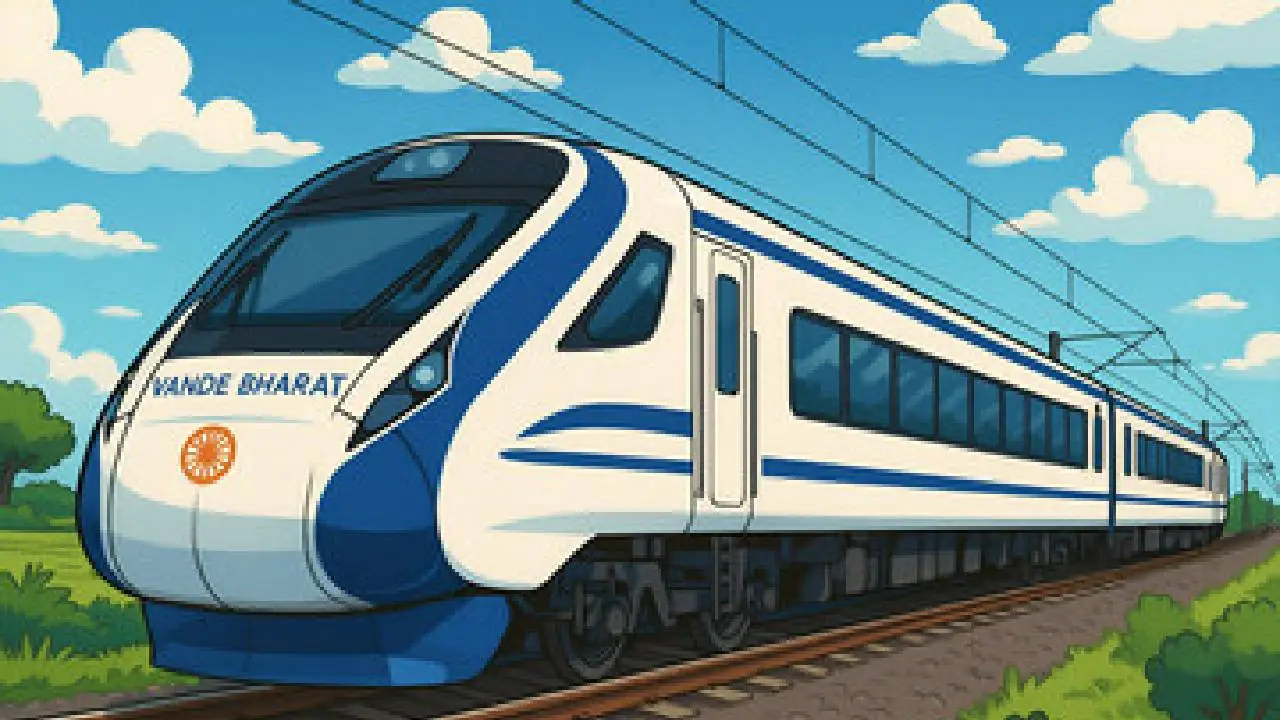
Credit:Top Indian News (Credit:Top Indian News)
National News: As India prepared for its busiest travel season, the IRCTC platform went down at the worst possible time. Both website and mobile app became unresponsive when thousands rushed to book tickets. For many families counting on train journeys during Diwali, the sudden breakdown was more than an inconvenience; it crushed their travel plans. The failure highlighted how dependent the country’s railway system has become on digital services that cannot afford to collapse during festivals. The outage spread panic among passengers, who were forced to scramble for alternatives.
The biggest blow came during Tatkal booking hours. At the exact moment when urgent travel tickets opened, the systems crashed. Passengers reported endless error messages and blank screens. For many, by the time the app and website started working again, trains were already full. This left countless travelers stranded, unable to book even a single seat. What should have been a lifeline service became a nightmare for those relying on the railway to take them home.
IRCTC officials admitted that the platform had suffered serious technical issues. They confirmed their engineers were working round-the-clock to restore stability and service. While promising that the system would be back soon, they gave no clear timeline. For affected passengers, the assurances offered little comfort. People vented their anger online, blaming IRCTC for not strengthening its infrastructure despite knowing how much traffic spikes during festive Tatkal hours. Officials now face mounting pressure to deliver real solutions before further damage is done.
Social media exploded with screenshots of “site down” and “error” notifications. Hashtags criticizing IRCTC trended within hours, with frustrated travelers sharing stories of missed opportunities. Some complained they lost their chance at securing seats on popular trains, while others said they wasted precious hours refreshing broken systems. The digital outrage reflected the deep reliance millions place on online booking. When that system fails, the frustration is not just about tickets but about trust in essential national services.
This was not the first time IRCTC stumbled during peak booking periods. Every year during festivals, the platform struggles under immense pressure. High demand often triggers slowdowns or outages that cripple online booking. Despite repeated experiences, passengers say little has been done to upgrade servers or expand capacity. Each failure chips away at public faith in digital platforms that were supposed to make travel easier, not harder. Critics argue the government must prioritize resilience to avoid repeating this chaos annually.
With the online platform unreliable, passengers were urged to seek alternate booking routes. Physical railway counters, authorized agents, and helplines became the fallback for desperate travelers. While less convenient, these methods remained functional even as digital services failed. Passengers were also asked to track official updates closely for news of restoration. But for many, these steps felt like going back in time, undoing years of progress toward a modern ticketing system that should not collapse during critical hours.
Beyond disrupted journeys, the outage raised bigger questions about India’s digital infrastructure. If one of the country’s most vital platforms cannot handle festival traffic, what does it say about preparedness? Millions depend on IRCTC every day, and such failures shake confidence. The Diwali crash underscored how technology is both a blessing and a risk. Unless authorities strengthen systems, the promise of easy digital access will continue to collapse under its own weight, leaving passengers helpless when they need it most.





Copyright © 2026 Top Indian News
